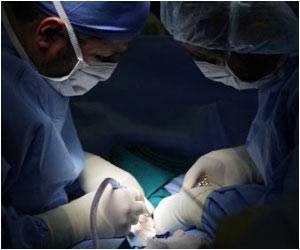Vasectomy is a dependable and safe technique of contraception. The new findings should be included in the guidelines for pre-vasectomy counseling.
- The operation normally takes 15 minutes and is performed under local anaesthesia
- Vasectomies are significantly safer than previously claimed, and patient information leaflets should be updated to reflect this
- Some post-operative swelling and pain are to be expected, but significant concerns are extremely rare
Vasectomy Surgeries in the United Kingdom
Every year, around 11,000 vasectomy surgeries are conducted in the United Kingdom, the vast majority of which are performed in primary care settings by specialist general practitioners. Between 2006 and 2021, the Association of Surgeons of Primary Care, directed by Dr Gareth James, collected data from 94,082 vasectomies, largely through patient questionnaires; one was completed on the day of surgery and the second was sent to patients four months afterwards.Almost 80% (around 77,000) of patients completed the first questionnaire, while little under 40% (36,500) completed the second.
Mr. Julian Peacock, a Senior Registrar at Gloucestershire Hospitals NHS Foundation Trust who headed the review along with Mr. John Henderson, Consultant Urological Surgeon, said, “This large dataset had never been independently analysed, and doing so has enabled us to update the standard complication rates, some of which dated back to the 1980s.”
Complications of Vasectomy
One of the most serious complications of vasectomy, for example, is chronic scrotal pain, which is estimated to afflict "up to 5% of all patients" in the British Association of Urological Surgeons (BAUS) patient information brochure on vasectomies. After reviewing more recent data, the team discovered that the rate was as low as 0.12% of patients.Chronic Scrotal Pain After Vasectomy
Mr. Peacock says, “The chances of chronic scrotal pain could be very off-putting, especially as it’s a difficult condition to manage. So we hope that this more up-to-date rate gives a better picture of the small chance of this happening.”Post-Operative Infection and Hematoma After Vasectomy
The risks of post-operative infection and hematoma (when blood clots in the scrotal tissue) were also discussed. Infection rates - defined as any instance or condition treated with antibiotics - are listed as 2-10% of patients in BAUS statistics, but the study discovered this was closer to 1.3%.According to BAUS statistics, hematoma rates in patients range between 2-10%, although new data suggests that this figure could be as low as 1.4%.
Failure Rates of Vasectomy
Vasectomy failure rates for 70,947 patients were available. The early failure rate - that is, discovering motile sperm at 3 months - was slightly greater than previously reported, happening in 360 patients, or 0.5%, compared to 0.4% reported by BAUS. Late failure, which happens when the severed ends of the vas deferens reconnect, happened in only 10 individuals, or 0.014%, compared to the BAUS figure of 0.05%.Is Vasectomy Safe?
Mr. Peacock added, “Vasectomy is a very reliable and safe contraception method. These figures might encourage more men to undergo the procedure, so we hope our research will be incorporated into the guidelines that provide information for pre-vasectomy counselling and leaflets. “Dr. Marij Dinkelman-Smit, Assistant Professor of Urology at Erasmus University Medical Centre in Rotterdam, Netherlands, and a member of the EAU’s section of Andrological Urology, said, “Although other countries’ standard information may be more up-to-date, nevertheless it is very useful for us as urologists to see large datasets of patient perspectives on this frequent procedure. As specialists, we mainly see the problems that arise from vasectomies, so it’s relevant for us to fill in the complete picture.”
Source-Medindia










